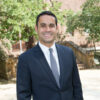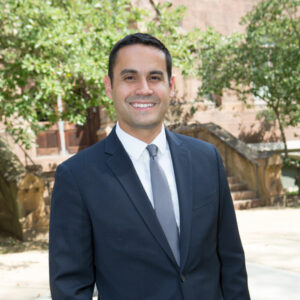Wouldn’t life be easier if we were all the same? If we all spoke the same language, wouldn’t we avoid so many of the conflicts and rifts that destroy our relationships? If we all shared a common culture, wouldn’t we all be much better off?
Where We’ve Gone Astray
Too often, Christians have hoped for a time when our differences would cease, when in Christ we would all be indistinguishable. Such impulses are earnest but fundamentally misguided.
Many such interpretations emerge from a fervent hope that the specters of racism, sexism, and myriad other destructive “isms” would no longer bind us to cycles of violence and hate. Many such interpretations emerge from a misreading of texts like Galatians 3:28. Such readings imagine that becoming Christians means becoming all the same in all ways. There are no ethnic differences between us (“no longer Jew or Greek”), no differences of class and status between us (“no longer slave or free”), no gendered differences between us (“no longer male and female”).
Nothing could be further from the truth.
Certainly, Galatians teaches that “in Christ Jesus you are all children of God through faith” (Galatians 3:26). Our adoption as children of God, however, does not erase our differences. Instead, that adoption erases the need to claim superiority or inferiority based on these markers of identity. We are not the same, but we are reminded that our differences are not ways to measure our value in the eyes of God and one another.
How PentecostPentecost was originally a Jewish harvest or pilgrimage festival that fell on the fiftieth day after Passover. It was during this festival that the Holy Spirit visited Jesus' followers in tongues of fire and caused them to speak in many languages, as reported in Acts... More Helps Us Think Differently about Difference
The story of Pentecost in Acts 2:1-21 helps us understand how God sees human diversity. Simply, diversity is one of God’s greatest gifts to the world. At Pentecost, God through the Spirit does not erase our differences but embraces the fact that God has made us all so wonderfully different.
First, a quick recap. The final chapters of the Gospel of Luke (see especially Luke 24:13-35) and the first chapters of Acts (see especially Acts 1:12-26) finds the disciples and other followers of Jesus regrouping and discerning what a life of faith together looks like after his death, resurrection, and ascension. Both at the end of the Gospel of Luke and again at the beginning of Acts, Jesus promises that he would bestow this gathered community with the gift of the Spirit (Luke 24:49 and Acts 1:8).
The gift arrives in grand style.
These early followers of Jesus gather in Jerusalem along with fellows Jews from around the Mediterranean world (Acts 2:5-11). They are gathered together in one place when suddenly tongues of fire descend from the heavens on the day of Pentecost. The gift of the spirit precipitates an extraordinary event. As the disciples proclaim the good news, everyone hears the good news proclaimed in their own language.
What might this all mean? After all, I don’t remember the last time I was able to speak another language without a great deal of study and effort along with more mistakes and linguistic faux pas than I can count. Speaking new languages always involves more than a few moments of embarrassment. None of that is narrated here. What then might this all mean?
Many interpreters have viewed this Pentecost moment as a direct response to the Tower of Babel (Genesis 11:1-9), a fantastic story that seeks to explain how a people once united by common ancestors eventually became peoples with many different languages. Some have forwarded that Pentecost reverses the punishment God meted out at Babel. Finally, we can understand one another because the Spirit enables all to understand one language.
To me, this is a significant misreading of Babel. Is it really a punishment from God that we are all different, that we speak different languages and live in different cultures? That is, is difference a problem in need of a solution? I certainly don’t think so, and the vibrancy of the world’s cultures is evidence against this misreading of Babel.
Most importantly, if Pentecost were a reversal of Babel, if Pentecost undid the diversity of human languages precipitated by Babel, why would the Spirit enable everyone to hear the gospel preached in their own languages? Why not cause everyone to understand one, universal, heavenly language?
Perhaps because the writer of Acts does not understand Babel to be a punishment God inflicted upon us. Perhaps because Acts understands Babel as an expression of God’s greatest hopes for all of humankind, not a punishment. Perhaps because Acts understands God’s commitments to our differences.
God Speaks Our Language
Notice what happens at Pentecost. God, through the Spirit, chooses to meet us where we are: in the midst of a multitude of languages and experiences. The Spirit translates the gospel instantly into myriad languages. If you think this is easy, then you have never tried learning a new language! You don’t just substitute one word in one language for a corresponding word in another language. Language is messy and intricate. Language is rooted in a wider and complex culture and way of thinking and living. Even when we speak the same language, don’t we still have a hard time understanding one another? Imagine then the miracle of Pentecost and what it means for us today.
God meets us in the messiness of different languages and does not ask us to speak God’s language. Instead, God chooses to speak our many languages. God does not speak in a divine language beyond our comprehension. At Pentecost, God speaks in Aramaic and Greek and other ancient languages. Today, God continues to speak in Spanish, Greek, Hindi, and Chinese alike.
At Pentecost, God makes a clear choice. God joins us in the midst of the messiness and the difficulties of speaking different languages, eating different foods, and living in different cultures. That is good news indeed.
So what happened at Pentecost? God met us exactly where we are.
A version of this essay was first published at Odyssey Networks‘ ONScripture. Reposted with permission.
Eric D. Barreto is assistant professor of New Testament at Luther Seminary, St. Paul, Minn.









